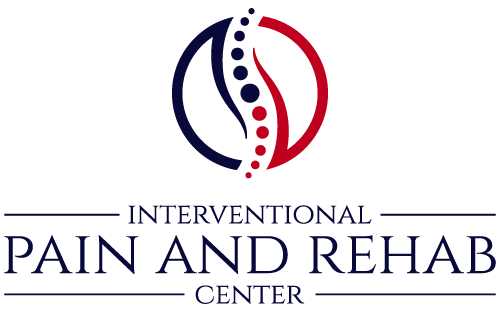Pain Management
Appointment
Fill Out The Form Below
Working Hour
- 8 AM - 5 PM
- 8 AM - 5 PM
- 8 AM - 5 PM
- 8 AM - 5 PM
- 8 AM - 5 PM
- Closed
- Closed

Pain Management
To start the diagnosis procedure, the medical professionals at (Interventional Pain and Rehab Center) will attentively listen to your medical history and conduct a thorough, hands-on physical examination. Additional methods for diagnosing pain include: Imaging, Injections or EMGs.
The diagnostic specialists at the IPRC can walk you through this difficult series of diagnosis and treatment options. Any diagnostic injections that may be used to a

Pain and Inflammation
One crucial mechanism for the development of chronic pain is inflammation, both at the site of injury and over time in the glial cells and other cells in the spinal cord and brain. Additionally, it has a pain therapy goal. In the management of acute pain, this may entail decreasing inflammation to return the body to a normal or homeostatic state. Reducing inflammation and getting the aberrant pro-inflammatory nerve cell function back to normal anti-inflammatory status are critical when treating chronic pain. Medication, corticosteroid injections, nutrition, vitamins, and getting enough sleep and exercise can all help with this.
Nutrition and Inflammation
A simple approach to begin applying an inflammation control strategy from the moment pain or injury occurs is to make dietary adjustments. These can have a substantial impact on our bodies’ general inflammatory state, both at the site of injury and within the brain. Refined flours, potatoes, and other starchy or sugary foods are among the dietary choices that raise inflammation. Good sources of anti-inflammatory carbs are whole grains and non-starchy veggies including broccoli, asparagus, and leafy greens. These foods have a number of benefits, which include:
- Reduced insulin release from your body due to a slower release of glucose.
- High quantities of fiber have anti-inflammatory properties because they are beneficial to the gut bacteria.
- Rich in additional essential nutrients.
Along with other health issues, saturated fats—like those in a lot of processed or fast food items and meat fats—can also raise inflammation and consequently pain. Omega-3 fatty acid-rich foods like walnuts, flaxseeds, and some fish, such salmon, are better options. Polyphenols found in extra virgin olive oil have anti-inflammatory properties. Colorful meals are generally very nutritional and excellent at reducing inflammation, such as berries, peppers, and other options.
Conservative Treatment of Pain
We will create a treatment plan that takes into account your unique requirements and preferences. Since we like to take a cautious approach whenever possible, this strategy will frequently incorporate a variety of techniques to reduce pain and enhance your quality of life, such as:
- Physical intervention
- Dry needling, cupping, massage therapy, soft tissue massage, and fitness instruction
- Topical analgesics and non-opioid painkillers
- Utilizing painkillers safely when necessary
- Lifestyle recommendations for managing pain
- Pain psychology services to address alternatives to pain management, such as mindfulness
- Other office-based injections, such as trigger points
Identifying Your Pain
To start the diagnosis procedure, the medical professionals at Denver Spine and Pain Institute will attentively listen to your medical history and conduct a thorough, hands-on physical examination. Additional methods for diagnosing pain includes: Imaging Injections for EMG and NCV
The diagnostic specialists at the IPRC can walk you through this difficult series of diagnosis and treatment options. Any diagnostic injections that may be used to aid in your diagnosis will be explained to you, along with their potential benefits.

Medication Management of Pain
When taken and administered properly, medications can be a very useful tool in the management of pain. There are many different medications available, and your provider will help with you to select the pharmaceutical regimen by going over the benefits, drawbacks, and rationale behind each option as well as your needs and input. Medication trials and the development of a customized regimen might be facilitated by collaborative decision-making to help you manage your pain. Selecting the appropriate painkiller or drugs to help you with your pain management plan is an art.
- Antidepressant medications
- Antiseizure medications
- Muscle relaxants
- Anti-inflammatory medications
- Other analgesics
- Topical medications
- Opioids
Superb Pain Control
We at the IPRC understand how crippling pain can completely ruin your life. Our staff is dedicated to providing you with the relief you need to resume enjoying your favorite activities. Helping you resume living your best life is our aim.
- A wide range of care alternatives, such as medical care, physical therapy, massage, advice on diet and lifestyle, mental health services, and other cutting-edge medical procedures
- Customized treatment programs to meet your unique pain requirements
- Therapeutic and compassionate connections with our team to guarantee the finest care possible
- A thorough explanation of every possible treatment available to you so that you may make an informed choice
